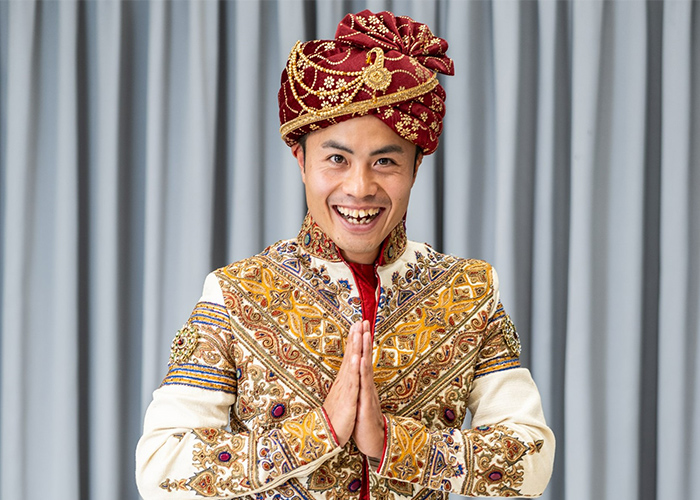My stage name comes from the Ghanaian soccer player Asamoah Gyan
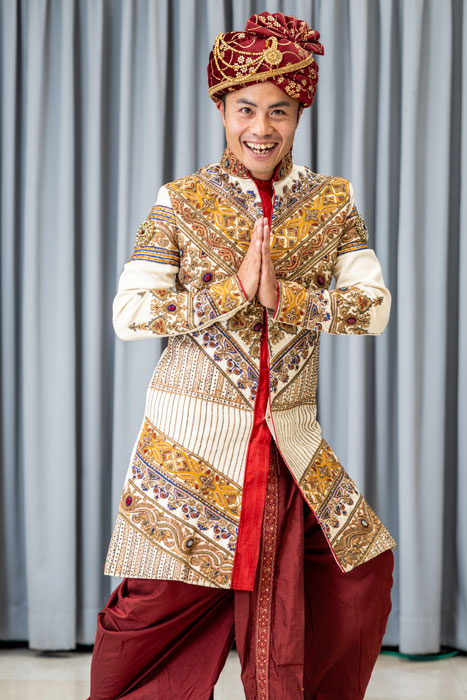
Namaste! I’m Gen Shibamoa. Of course, that’s my stage name. When I was in elementary school, I was watching Japan’ national soccer team play a match on TV, and fell in love with a Ghanaian player named Asamoah Gyan on the opposing team. With an athletic ability characteristic of African players, Gyan scored perfectly and then danced joyfully after scoring a goal—seeing that shocked me. Even as a kid I had the intuition that “Ghanaian soccer is going to take the world by storm,” and I’ve cheered for Ghana’s soccer team ever since, following Gyan’s career along the way.
I created my stage name by combining the “Shiba” from my family name Shibata with the “-moah” from Asamoah, making “Shibamoa.” As for my given name, since junior high school I had whimsically called myself “Genichirō,” so I took “Gen.” My real given name is Sōichirō, but “Sō” felt too breezy for me— “Gen” sounded wilder and cooler. Ever since junior high I secretly thought that if I ever used a stage name, it would be Gen Shibamoa! As much as I love Gyan, I’ve always been a spectator when it comes to soccer. Personally, I played baseball from first grade of elementary school through the third year of high school.
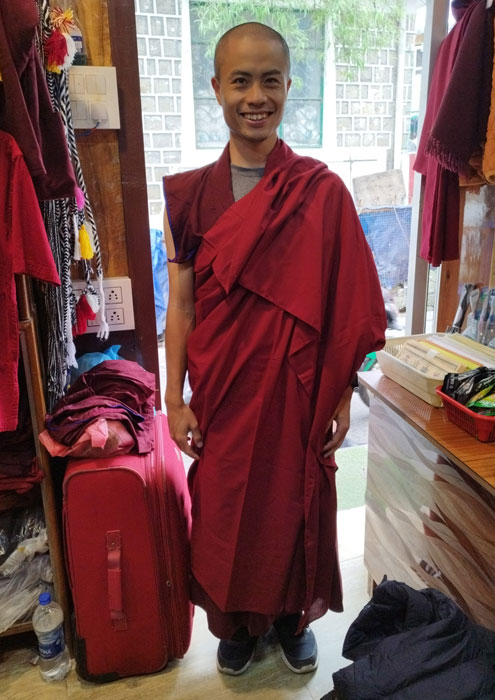
That was a long intro about my name, but I currently work as an actor and stand-up comedian in India, and as an “India-Loving Comedian” in Japan. Lately I go back and forth between India and Japan; right now, it’s about a 60:40 split, spending more time in India. When I walk around the streets of Delhi, I get recognized at least once a day.
Why India? …Have you ever watched an Indian movie? In a single film you’ll get laughs, romance, action, everything—and then out of nowhere people suddenly break into a dance; it’s so entertaining. The first Indian movie I saw was “Koisuru Rinne: Om Shanti Om” (Om Shanti Om). When I saw the final scene where the cast dances, I felt a powerful urge that I wanted to be in there dancing, too! Even in Indian restaurants in Japan, some places endlessly play Indian TV programs, and I’d find myself thinking, “It’d be fun to appear on that TV,” and my feelings for India just kept growing.
And one month after watching my first Indian movie, I was already attending a drama school in New Delhi, India. At the time I wanted to study not just comedy but acting too, so I thought, then it’s got to be India! I was in my senior year of university.
A childhood spent loving “making people laugh,” alongside baseball and Kumon
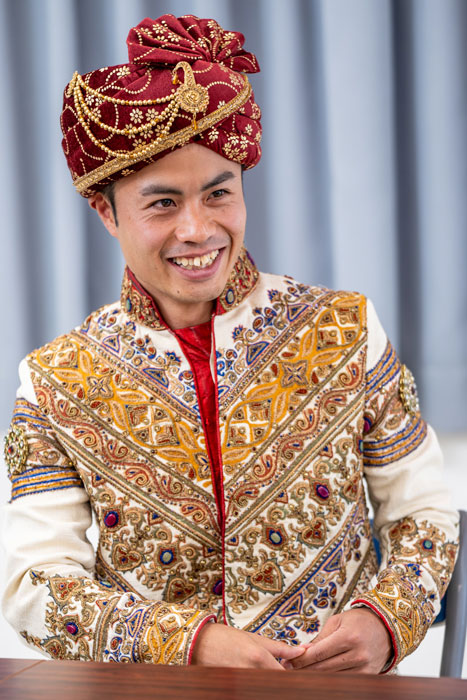
I was born and raised in Fukui City. I’ve loved making people laugh since kindergarten. I remember sitting in the back row of the kindergarten bus, making funny faces at a truck driver behind us. The driver laughed and said over his speaker, “Hey kid, what are you doing?!” Everyone on the bus cracked up— “What’s that guy doing?”—and I was thrilled. That’s the origin of my desire to “make people laugh.”
In elementary school I was rambunctious, and my report cards were almost blank. In Fukui’s elementary schools, “blank” means the lowest evaluation. I had so many blank sections that my mother wondered whether the teacher had forgotten to fill them in…
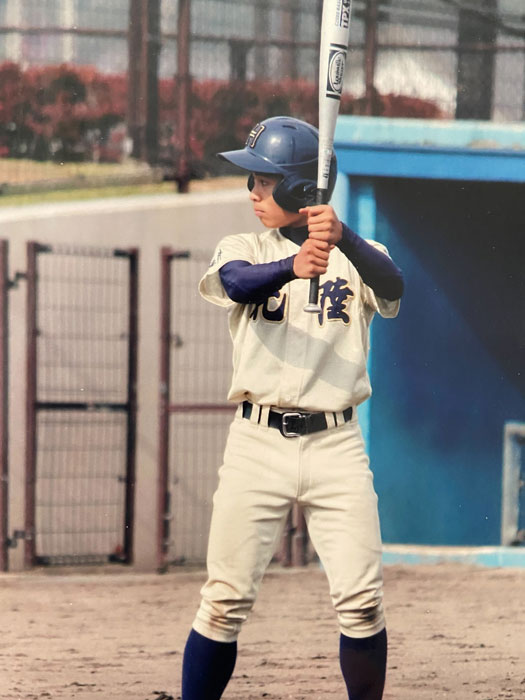
I also have this memory from junior high school. During a baseball team road trip, we stopped at a service area on the expressway. The coach told me, “Do something funny,” so I performed a routine. People passing by actually tossed me some tips—five or six 100-yen coins, I think. For a junior high schooler, that was a decent bit of pocket money. It became an early experience of success at comedy.
When my mother heard other parents say, “Shiba-chan was amazing at the service area,” she looked rather pleased. I think my parents understood my desire to make people laugh. No matter how bad my report cards were, my mom would just react with, “You’re such a fool, aren’t you.” I don’t remember ever being forced to study. When I later asked her about that, she said she had “given up because it was pointless to say anything” (weary smile). My father’s educational stance was, “Do what you like. But take responsibility for it.” Looking back, I was allowed to do what I wanted, the way I wanted.
Besides baseball, I started Kumon in third grade. At the time my mother was a grading staff member at a Kumon Center, and I attended that center. But I didn’t start Kumon because my mother told me to—I did it because my friends were doing it. I was contrary by nature, so maybe because I wasn’t told to do it, I wanted to do it. When I was in sixth grade, my mother transitioned from grader to instructor. She still runs her Kumon Center today.
At Kumon I started with math, and later added English, continuing until around the third year of junior high school. I advanced to high-school level in both subjects, and in English I even received a commendation—I remember getting a commemorative plaque. At Kumon, even if you make mistakes, you just correct them and move on, and the faster you work the sooner you can go home. That feeling was fun, and I liked it. I think I was studying about three to four grades ahead. Thanks to that, in junior and high school I always scored over 90 points in tests for those two subjects without really revising. But because my attitude in class was poor, my report cards were not impressive. I did, however, contribute greatly to energizing the class with comedy.
Because I worked hard at baseball in high school, I was admitted to a university in Tokyo in a smooth process via a school recommendation. Many Fukui high schoolers wanted to go to universities in the Kansai area, so as a contrarian who also longed for Tokyo, I deliberately picked a university in Tokyo with lower competition. That said, I didn’t have anything particular I wanted to do at university, and just took a spot in the Business Administration department because it happened to be open. Back then I vaguely thought I’d just become a regular company employee.
That thinking changed completely when, during spring break after my first year, I traveled to Ghana. I was 19 years old.
Towards comedy in English, my strength:
A life-defining trip to Ghana
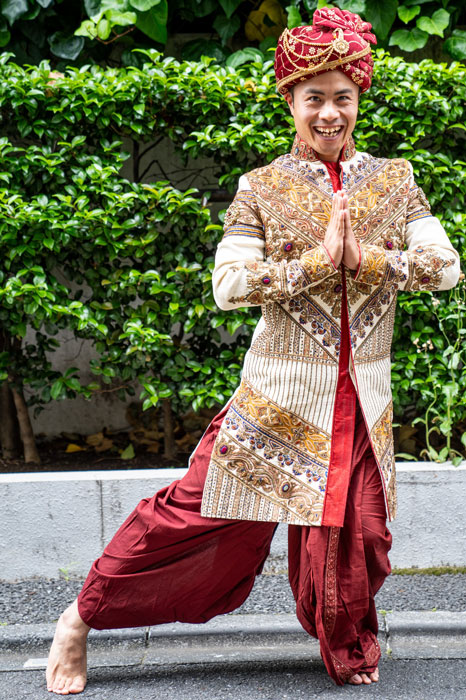
This trip to Ghana was my first time traveling abroad. The purpose was to watch an official match to determine Africa’s representative soccer team. The host country was Equatorial Guinea, so I really wanted to see it there, but due to various uncertainties at the time, I decided to watch a public viewing in Ghana, the home country of my beloved Gyan, together with Ghanaians. I remember having an incredibly fun time getting fired up with the locals.
Before going, I had an image of African countries as poor with harsh living conditions, but actually going to Ghana, the first thing I felt was, “They look much happier than Japanese people!” Even though there’s hardly any entertainment, people drink at dance bars and keep dancing for around six hours straight. Meanwhile in Japan, everything is available and there are many ways to have fun. “So why do people seem to be struggling?” I found myself wondering.
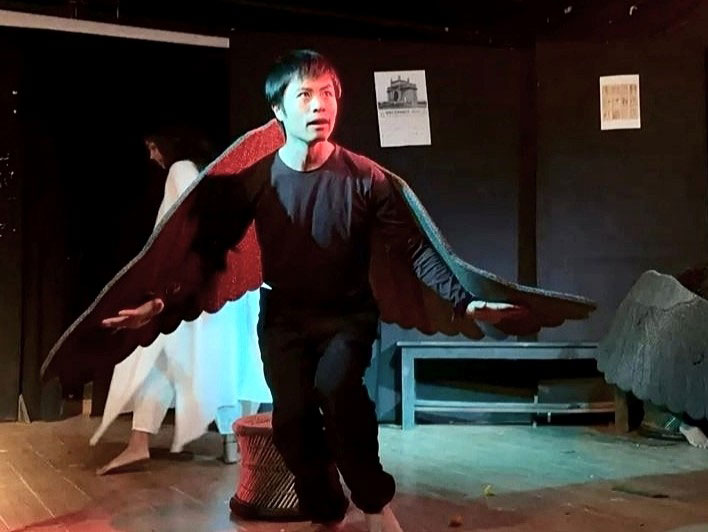
From that experience in Ghana, I realized, “The purpose of life is to enjoy it!” So, what is a “fun life”? Thinking about it, since work takes up most of one’s time, I decided to do work that I find fun. That work was comedy, which I’d loved since I was small. That said, a lot of people work in comedy, so without a distinctive feature, you can’t survive. So, I aimed for stand-up comedy and speaking that would leverage my strength in English.
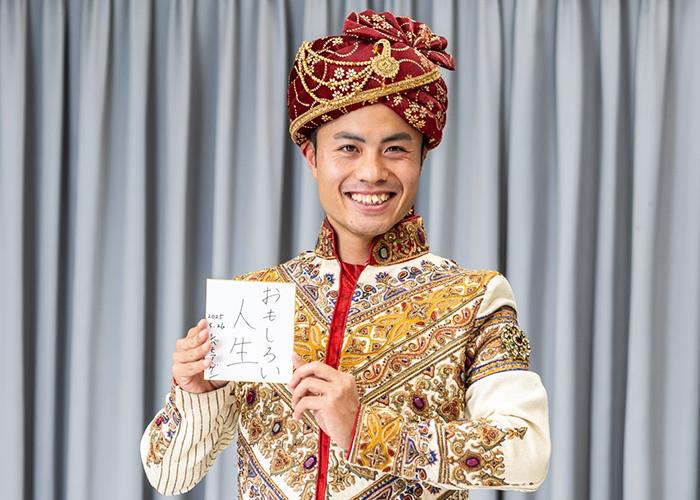 |
From the Part 2 interview -For language acquisition, “time” and “purpose” are crucial |

